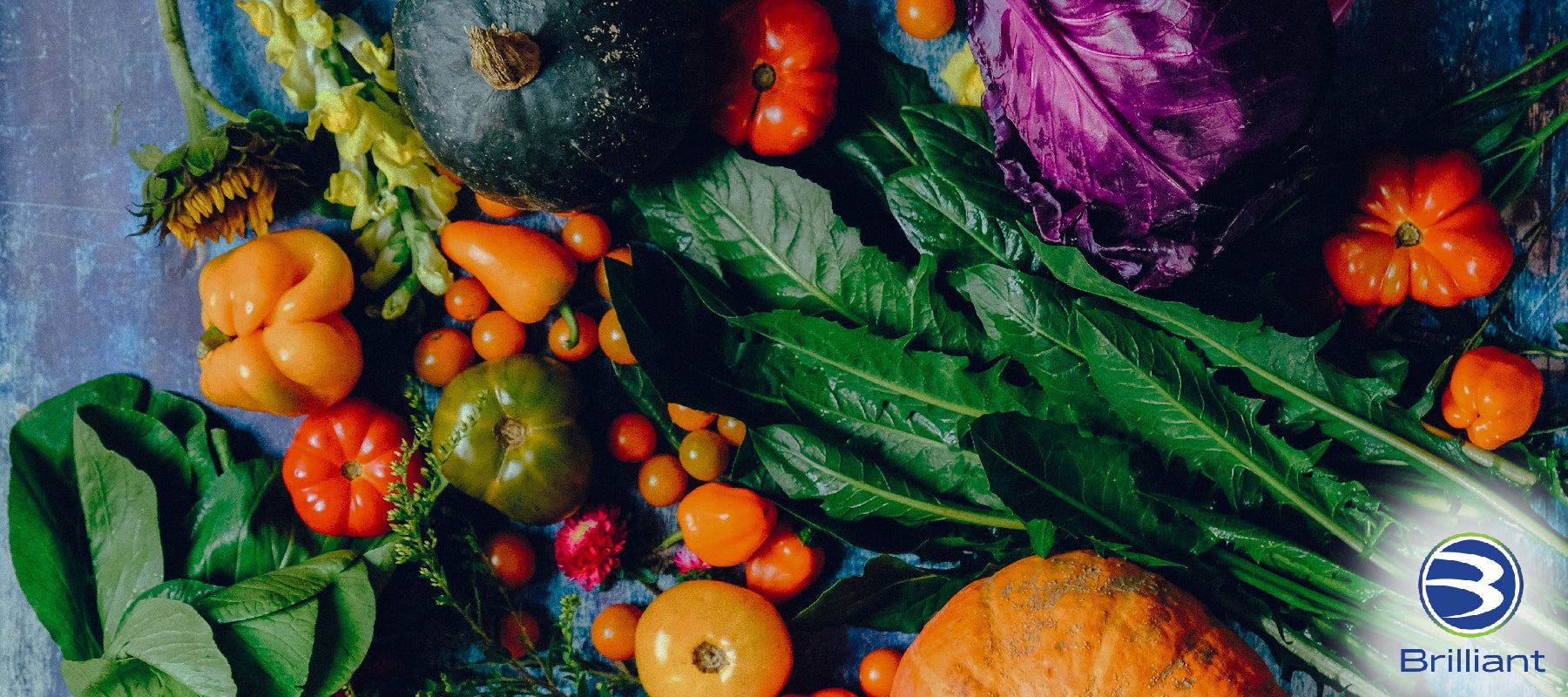- Phone: 1.404.373.4030
- Opening Hours: Mon-Fri 9AM-5PM Eastern

In our never ending quest to eat healthier, stay active and increase our life span the subject of organic food is alway a popular topic. We hear THE TERM organic often, but we don’t get enough stability in information to make a decision on it’s benefit to our welfare. In terms of fresh produce, our fruits and vegetables, what does organic really mean? Organic produce is defined as food that is grown on soil without the use of prohibited synthetic fertilizers and pesticides. The USDA has a whole series of regulations that must be met in order for produce to be called organic. Farmers have to undergo an organic inspection every year in order for their produce to be correctly classified as organic, and it’s an extensive inspection and an important process. What does “organic farming” mean? Which option is healthier for you: organic or non organic? What should you look for when purchasing organic produce? Let’s explore!
Organic farming began in the United States in the late 1940’s. We’ve established that organic farming is growing and processing fresh produce without using synthetic fertilizers or pesticides. Some other important aspects of organic farming are:
With the restrictions on pesticides and fertilizers on organic produce our assumption is that it must be healthier than regular, non organic produce. Is organic produce healthier? Research and careful study shows that it is!
Our research and study has pointed us toward organic produce as the healthiest option for our consumption. There are important factors to look for when shopping for organic. Different organizations devoted to health and well being have studied and analyzed pesticide testing and found the produce that carries the highest levels of pesticide residue, These are the produce items that tested with the highest levels, the ones recommended that you definitely buy organic:
Not ALL produce tests as high for pesticide residue as the ones listed above. Some produce is safe to purchase where the fear of harmful pesticide exposure is not as high. The produce items where you don’t need to be quite so vigilant to purchase organic, these “Clean 15” items are:
We have just scratched the surface on the issue of buying organic. Organic food is much more than just produce. Organic meats and organic packaged foods are filling the shelves of our stores. It is well worth your time, and your health, to do your research and develop an informed opinion on what type of foods are best for you and your family. It is a great privilege to live in a country where we have so many options of healthy choices.Buying organic can be more expensive, no doubt, but when you look at the research and the options we do have, organic is well worth the extra price!
© 2020 Compac Industries. All rights reserved.
This article is intended to provide an understanding of and knowledge about “health topics” as expressed through the perspective and research of the author. It is not intended to be a substitute for professional advice or counsel, including the diagnosis or treatment of any condition. Always seek the advice of your qualified healthcare provider with any questions you may have regarding a medical condition, illness or treatment of any listed or non listed situation above. By using this site, you signify your assent to our Terms and Conditions.
Sources:
https://district.schoolnutritionandfitness.com/lasvirgenesusd/files/Nutrition_Library/Organic_vs.pdf
https://www.usda.gov/media/blog/2012/03/22/organic-101-what-usda-organic-label-means
https://www.helpguide.org/articles/healthy-eating/organic-foods.htm


DISCLOSURE: Noelle Copeland RDH is an Oral Care Specialist and Dental Consultant who provides content

DISCLOSURE: Noelle Copeland RDH is an Oral Care Specialist and Dental Consultant who provides content

We believe that all people are fearfully and wonderfully made and designed in the womb for a grand purpose.
Useful Links
Copyright © 2023 Compac Industries | All Rights Reserved.